Got a balcony or patio railing? Then you’ve got prime real estate for growing your own vegetables. Even if space is limited, you can still grow plenty of delicious and healthy greens with just a few railing planters or hanging pots.
It’s a smart way to make every inch count while adding a fresh pop of green to your outdoor nook.
These 12 common vegetables are perfect for growing on railings, thanks to their compact size and shallow root systems. You get to enjoy fresh, homegrown produce while turning your railing into a mini edible garden.
If you’re looking to eat healthier or just want to grow something of your own, this list is a great place to start.
#1 Pak Choi
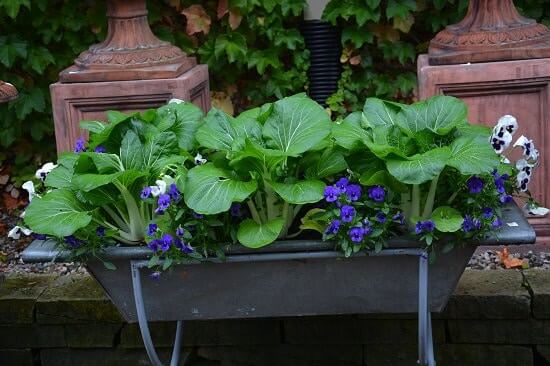 Source: Balconygardenweb
Source: Balconygardenweb
Pak Choi, also known as Bok Choy, is a quick grower and does well in railing containers. It prefers cooler temperatures and can thrive in partial shade. This leafy green is tender, crisp, and great in stir-fries or soups.
Choose a deep enough pot to support its short root system and keep the soil moist for best results.
#2 Kale
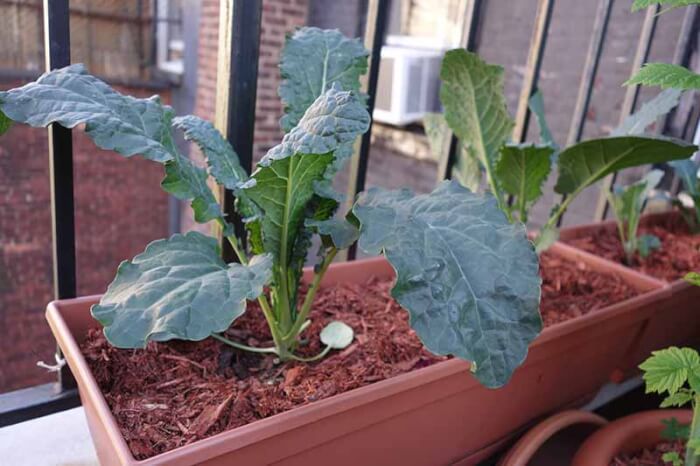 Source: Gardenerspath
Source: Gardenerspath
Kale is both pretty and practical, making it a great pick for railings. It’s packed with nutrients and grows well even with just a few hours of sun.
Use a medium-sized pot and space each plant out for good air circulation. A regular watering schedule helps keep the leaves tender.
#3 Lettuce
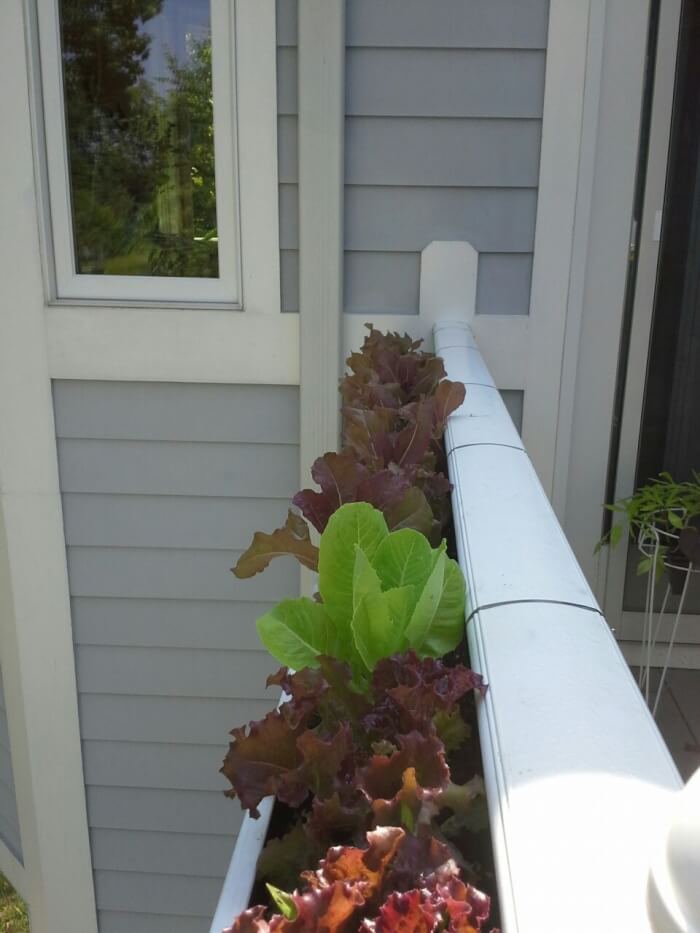 Source: Guttergardens
Source: Guttergardens
Lettuce grows fast and is easy to tuck into narrow railing planters. Since it doesn’t need deep soil, it’s ideal for shallow containers.
Go for loose-leaf varieties if you want a continual harvest. Keep it in partial shade to avoid early bolting.
#4 Radish
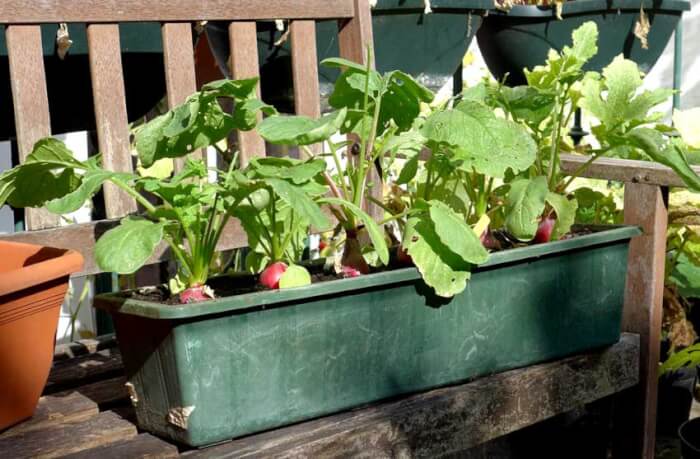 Source: Kitchen-garden
Source: Kitchen-garden
Radishes grow quickly and don’t need much room, which makes them perfect for containers. You can choose from a range of small varieties.
Make sure the soil drains well and thin the seedlings to avoid crowding. Harvest when the roots are about an inch across.
#5 Purslane
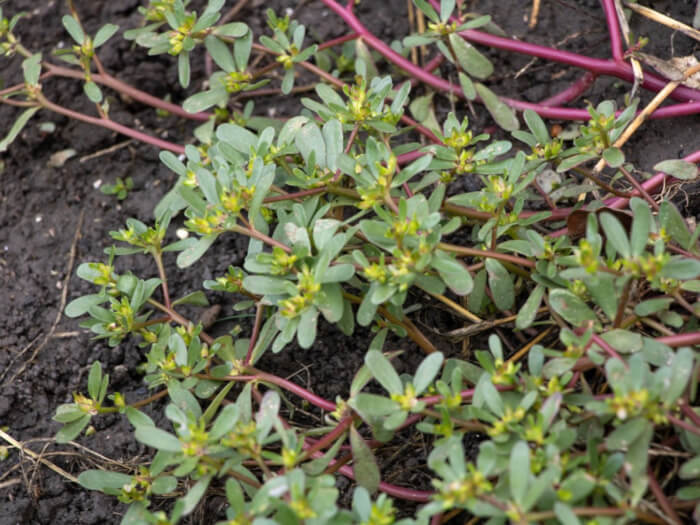 Source: Gardeningknowhow
Source: Gardeningknowhow
Purslane is a hardy plant that many overlook, but it’s edible and nutritious, rich in omega-3 fatty acids, vitamin C, and E. You can grow it easily in railing planters, both from seeds and cuttings.
It thrives in heat and poor soil, which makes it almost effortless to grow. Just tuck a few cuttings or seeds into a pot and let them spread. The tender leaves are great in salads.
#6 Peas
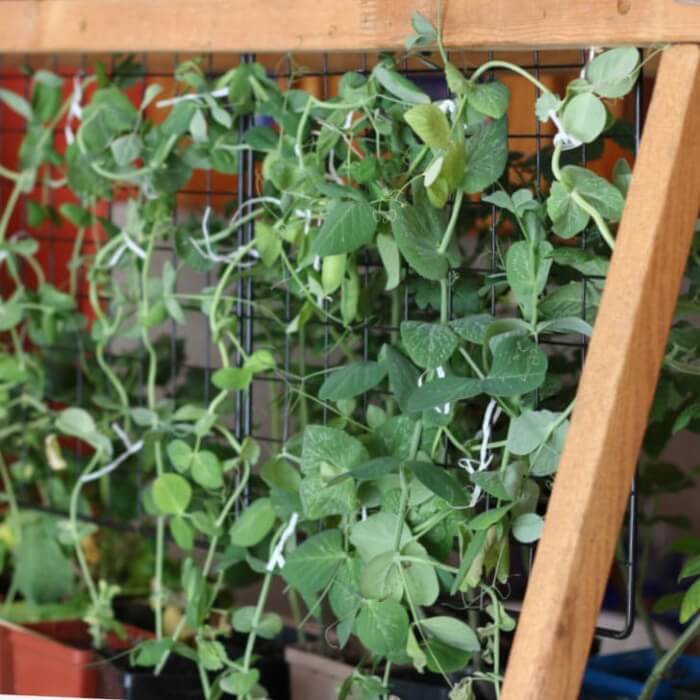 Source: Empressofdirt
Source: Empressofdirt
Bush pea varieties can fit nicely on your railings. They don’t climb as much as standard peas, but still give you a great harvest.
Choose a container with good drainage and keep it in full sun. Peas love cooler temperatures, so early spring or fall works best.
#7 Herbs
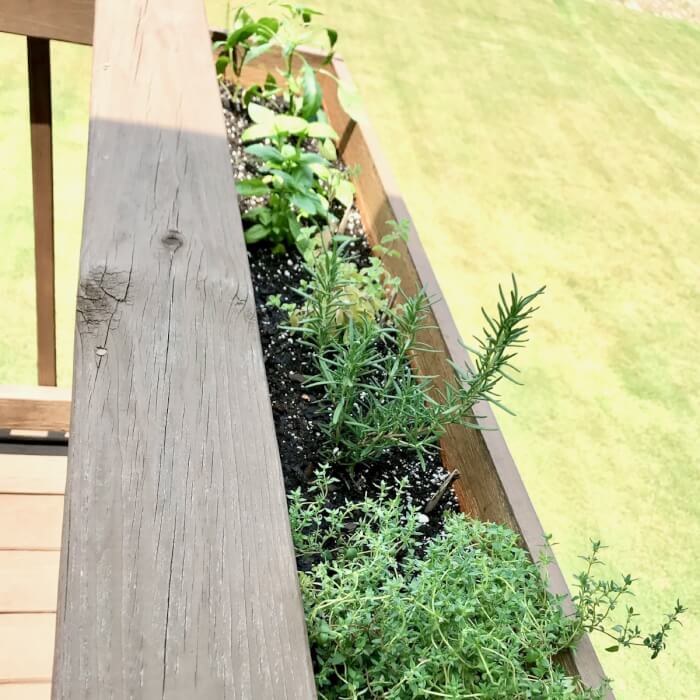 Source: Drawbuildplay
Source: Drawbuildplay
Herbs like basil, parsley, thyme, and chives are perfect for railing gardens. They require little space and can grow well even in small pots.
Use individual containers or group them in a long planter. Give them at least a few hours of sunlight each day.
#8 Carrots
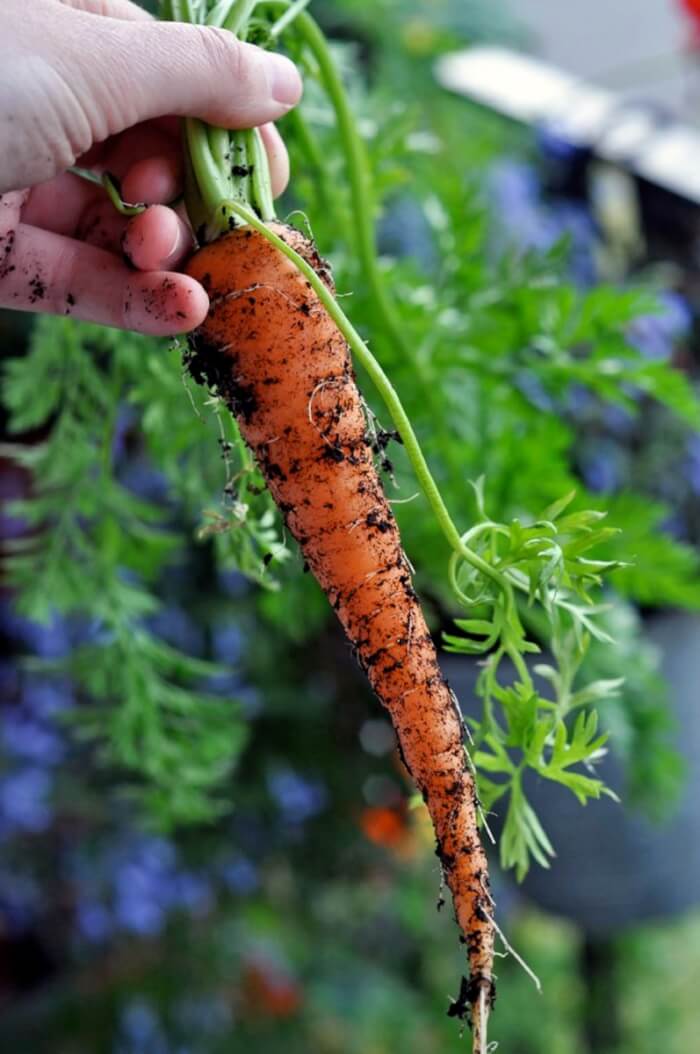 Source: Dengarden
Source: Dengarden
Carrots may seem tricky, but smaller varieties do great in railing planters.
Choose deep pots that give roots room to grow. Keep the soil loose and free of rocks. Thin the seedlings early so each carrot has space to develop properly.
#9 Turnip
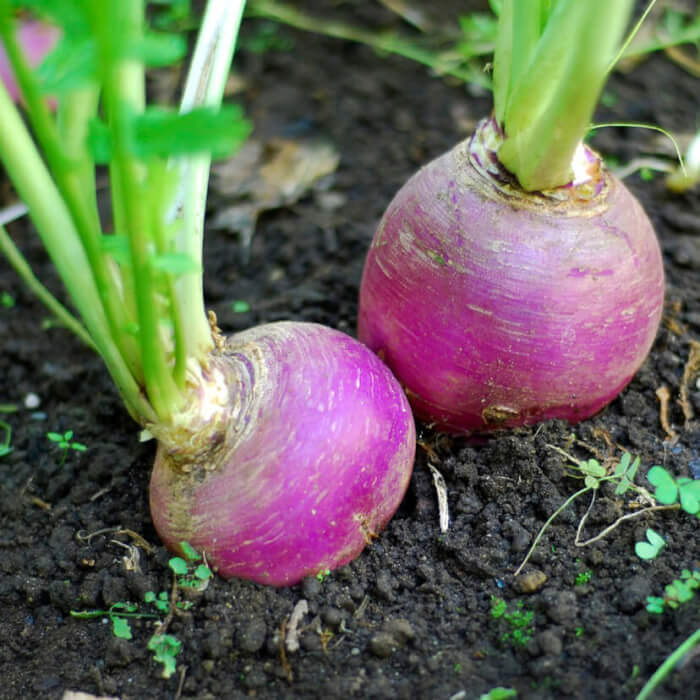 Source: Oscseeds
Source: Oscseeds
Turnips are another root crop that can grow well on railings. You get two harvests in one: crisp roots and leafy greens.
Use containers that are at least 8 inches deep. Regular watering helps the roots stay tender.
#10 Bush Beans
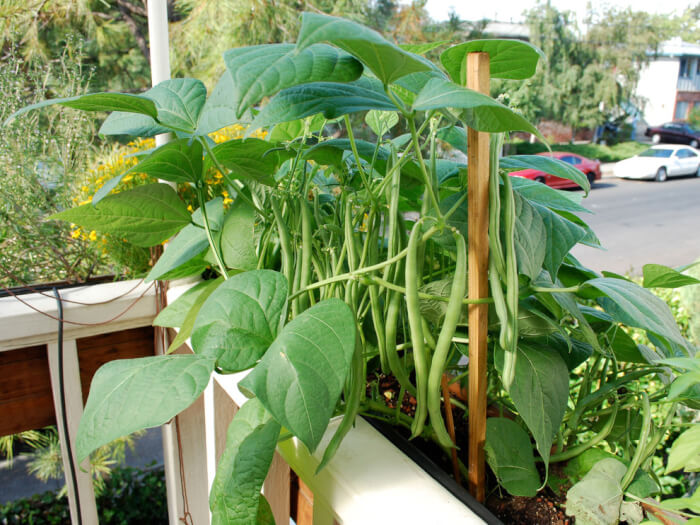 Source: Houzz
Source: Houzz
Bush beans grow compact and produce fast, making them ideal for tight spaces. They do best with full sun and rich soil.
Choose a rectangular planter and space them evenly. Harvest the pods while they’re young and crisp.
#11 Tomatoes
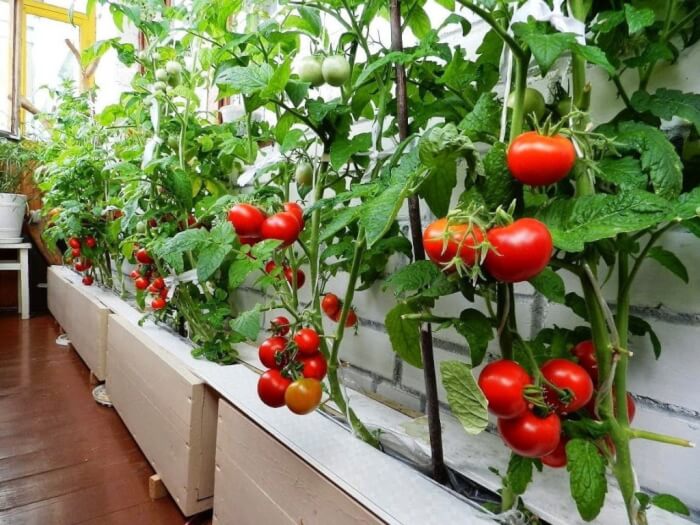 Source: Garden-gadget
Source: Garden-gadget
Small tomato varieties like cherry or grape tomatoes work well in railing containers. They need lots of sunlight and steady support.
Place them near the railing for natural trellis help and keep the soil consistently moist. You’ll love picking them right off the vine.
#12 Spinach
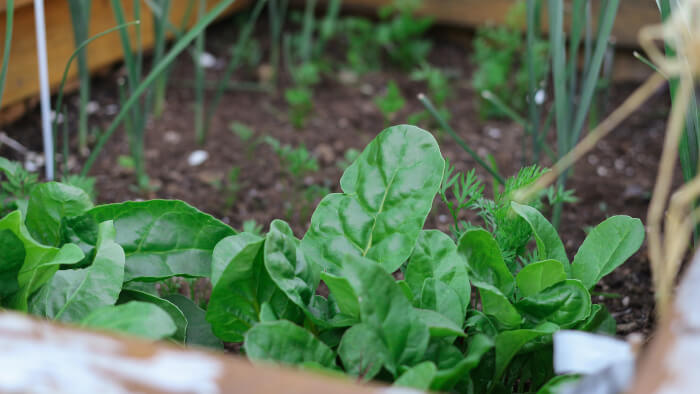 Source: Homesandgardens
Source: Homesandgardens
Spinach grows well in containers and doesn’t ask for much. It prefers cool weather and partial shade.
Use shallow, wide pots and keep the soil evenly moist. You can harvest the outer leaves as needed for salads or sautés.
